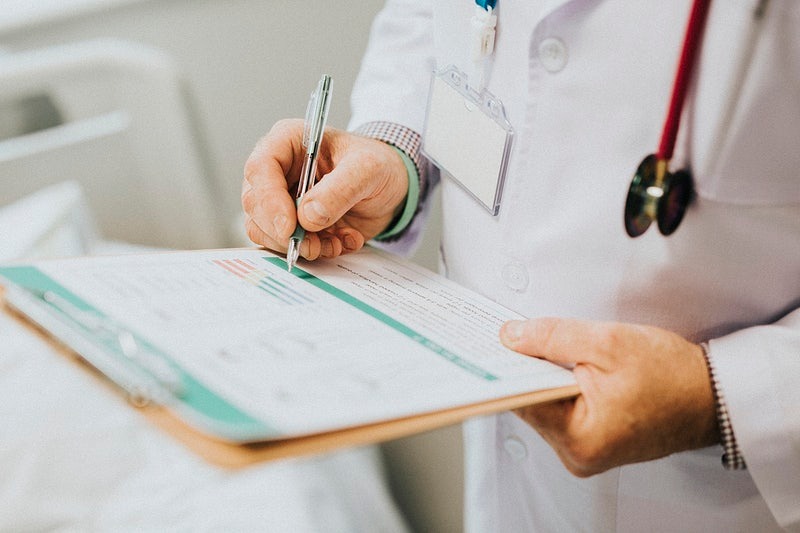Assisting your treatment process with medication has many benefits. However, there are also risks to consider when looking into medication-assisted treatment (MAT) for addiction. Learning more about MAT and its risks and benefits can help you decide if taking medication is the right approach to treatment for your personal journey.
What Is Medication-Assisted Treatment?
According to the Substance Abuse and Mental Health Services Administration (SAMHSA), MAT “is the use of medications, in combination with counseling and behavioral therapies, to provide a “whole-patient” approach to the treatment of substance use disorders.” MAT is primarily used to treat addiction to opioids such as heroin or prescription opiates. However, MAT can also be used to treat alcohol addiction. The medications used for MAT normalize brain chemistry, block the euphoric effects of alcohol and opioids, relieve physiological cravings, and normalize body functions without the negative and euphoric effects of the substance used.
Medications used for MAT are approved by the Food and Drug Administration (FDA). Commonly used medications for MAT and the addictions they help treat include:
- Alcohol use disorder medications: Acamprosate, disulfiram, and naltrexone are the most common medications used to treat someone with an addiction to alcohol.
- Opioid use disorder medications: Buprenorphine, methadone, and naltrexone are used to treat opioid addiction to short-acting opioids such as heroin, morphine, and codeine, as well as semi-synthetic opioids like oxycodone and hydrocodone.
- Opioid overdose prevention medications: Not all medications used for MAT are used to treat addiction. Naloxone is used to prevent opioid overdose by reversing the toxic effects of the overdose.
The Benefits of Medication-Assisted Treatment
There are various benefits to MAT, including:
#1. Prevents Cravings
Almost everybody who is recovering from addiction experiences cravings at some point. Cravings are intense feelings of wanting to drink or use drugs and occur due to altered brain chemistry from substance abuse. However, medications used in MAT can help correct brain chemistry that causes cravings.
Medications used to treat opioid addiction block the euphoric effects of substances. Due to this, MAT eliminates the need for the substance, leading to lessened cravings. Medications used in MAT also help manage withdrawal symptoms, which is a common reason people continue to use even when wanting to get sober.
#2. Keeps People Safe During Withdrawal
MAT significantly helps people in the process of withdrawal. While in detox, clients often struggle with severe side effects when they stop taking their substance of choice. Some of these side effects can include seizures, high blood pressure, and rapid heart rate. However, medicines help regulate withdrawal symptoms, ultimately making the detox process safer.
Other Benefits of Medication-Assisted Treatment
According to SAMHSA, other benefits of MAT include:
- Improved client survival
- Increased retention in treatment
- Decreased illicit opiate use and other criminal activity among people struggling with addiction
- Increased ability to gain and maintain employment
- Improved birth outcomes among women who are pregnant and struggling with addiction
- Lowered risk of contracting HIV or hepatitis C
- Reduced potential for relapse
The Possible Risks of Medication-Assisted Treatment
While MAT is proven to be highly beneficial to those recovering from addiction, there are risks to consider when taking medication, including:
- MAT requires close medical attention at a certified facility
- Medications used in MAT can cause uncomfortable side effects
- Medications used in MAT have the potential for abuse
The biggest concern with MAT is the potential for medications to be abused. Although these medications help millions of people, it is possible to become addicted to them as well. However, by following the strict guidelines set in place by a medical professional, this risk is lessened. It is essential for those considering MAT to have a safe tapering plan to avoid withdrawal and cravings for MAT medications.
Deciding What Treatment Approach Is Right for You
While MAT can significantly benefit those looking to recover from addiction, it isn’t for everyone. A MAT program will include screening and analysis to determine if you are a suitable candidate for medication. For example, if you want to try a MAT program, you must have an official diagnosis of an addiction to opiates, be fully willing to comply with prescription instructions, have education on alternative options, and not have any physical problems the medication could exacerbate. You may not qualify for MAT if you:
- Have a history of abusing prescription medication
- Are addicted to a substance that does not have an FDA approved MAT medication, such as methamphetamine
- Do not have a strong motivation to recover
- Have a physical condition that medication could worsen
If you’re looking into treatment for addiction, MAT may be a step in the right direction. However, it is best to seek a professional assessment to determine if MAT is suitable for you.
Medication-assisted treatment (MAT) involves the use of FDA-approved medications to treat addiction. MAT is a commonly used treatment practice nationwide; however, it is not suitable for everyone. When deciding whether or not MAT is right for you, it is best to consider the benefits and risks. MAT has high success rates and can reduce cravings, the risk of relapse, and the chances of contracting HIV or hepatitis C. MAT also improves client retention and helps save lives. However, medications used for MAT require close monitoring, may have uncomfortable side effects and have a risk for abuse and addiction. If you or a loved one is struggling with addiction and looking for a solution, Dream Recovery is here to help. Our outpatient program in Costa Mesa, California, can help you overcome addiction while utilizing MAT. For more information on our program and how MAT can benefit your recovery, call Dream Recovery today at (949) 732-1960.


Recent Comments